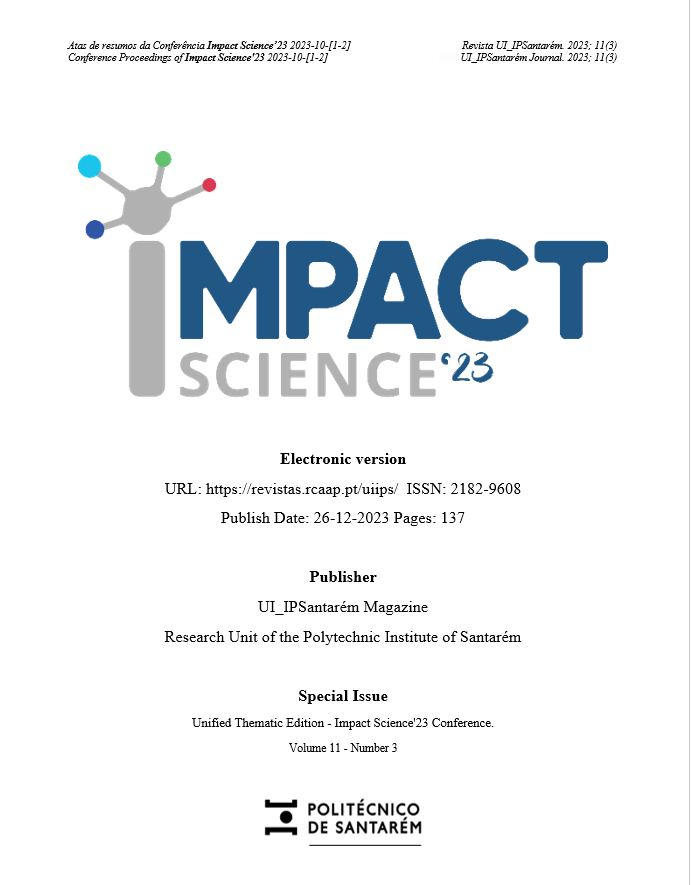Short Agri-Food Circuits: Challenges and Interventions for a Resilient and Sustainable Economy
DOI:
https://doi.org/10.25746/ruiips.v11.i3.32505Keywords:
Short Agri-Food Circuits, Benefits, Challenges, InterventionsAbstract
The Short Food Supply Chain (SFSC) are a sustainable and socially fair way of producing and consuming agrifood products. This way of organizing food distribution can make a positive contribution to creating a more resilient economy. The last ten years of short agri-food circuits/proximity circuits in Portugal have been marked by significant advances, but have also reinforced the fact that many of the challenges to their implementation persist. In the pandemic period, they gained popularity again. This was due to a series of factors, such as the growing interest of consumers in fresh and quality food, the concern with the environmental impact of food production and some (little) support from the Portuguese government to SFSC. In articles written between 2013 and 2014, the authors argued that the SFSC could contribute to the creation of jobs, the preservation of culture and rural heritage and the improvement of the quality of life of rural communities. In the same period, the main challenges that the SFSC faced were described, such as the lack of infrastructure, the lack of training in terms of food safety and hygiene, communication and marketing, and the lack of easy and flexible regulation to facilitate its implementation and streamlining. Today, the challenges to the management of the SFSC or the short circuits of proximity persist, invoking the need for producers to believe in the creation of value that they are guaranteeing, verifying that the majority of consumers manifest some lack of knowledge in these alternative forms of commercialization and that governance removes many of the barriers to encouraging local markets or other forms of SFSC. While maintaining the need to give them the necessary visibility and access to SFSC, it is necessary to adopt strategies that promote awareness of their benefits, facilitate direct contact between producers and consumers and make these initiatives more attractive to the population.
This communication discusses interventions that can be organized to:
- Highlighting the importance of local purchasing to support the region's economy and environmental sustainability can awaken the interest of consumers, justifying promotion in the form of publicity campaigns in the media;
- Improve literacy, introducing the concept and understanding of its benefits in educational programs to promote healthy and sustainable eating in schools (also involving families);
- Increase the training of producers in specific areas of support to the SFSC;
- Promote more support networks between producers, consumers and non-governmental organizations that promote short circuits, share knowledge, resources and experiences to strengthen these initiatives.
The ongoing commitment to promoting a "more" local, sustainable, and conscious agriculture is essential to guarantee a more resilient and healthy future for the Portuguese population and the environment. Despite the consensus that SFSC represent an opportunity for producers, consumers and the environment, greater involvement of all parties involved is necessary, especially at the municipal level, so that they can reach their full potential for rural development.
Downloads
Published
How to Cite
Issue
Section
License
Copyright (c) 2023 José Carvalho, Paula Ruivo

This work is licensed under a Creative Commons Attribution-NonCommercial-NoDerivatives 4.0 International License.
Authors publishing in this journal agree to the following terms:
Authors retain copyright and grant the journal the right of first publication, with the article simultaneously licensed under the Creative Commons Attribution License that allows sharing of the work with acknowledgement of authorship and initial publication in this journal.
Authors are permitted to enter into additional contracts separately for non-exclusive distribution of the version of the article published in this journal (e.g., publish in an institutional repository or as a book chapter), with acknowledgment of authorship and initial publication in this journal.
Authors have permission and are encouraged to publish and distribute their work online (e.g., in institutional repositories or on their personal webpage) at any point before or during the editorial process, as this may generate productive changes, as well as increase the impact and citation of the published work.



